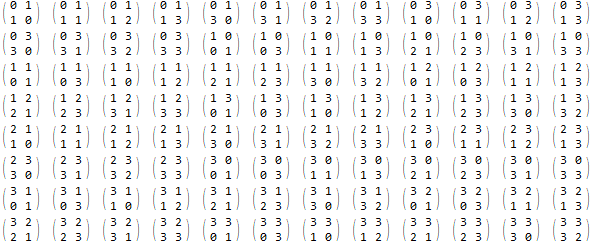Using your Table expression, you will want to Flatten the results to obtain a list of matrices, rather than nested lists:
t1 = Table[{{i, j}, {m, n}}, {i, 0, 2}, {j, 0, 2}, {n, 0, 2}, {m, 0, 2}]~Flatten~3;
The same thing can be obtained more directly using Tuples:
t1 = Tuples[Range[0, 2], {2, 2}]
You will then Select those matrices that have a unity determinant and apply MatrixForm to them individually using Map:
MatrixForm /@ Select[t1, Det[#] == 1 &]

The question was recently changed to specify that the determinant should be 1 when considered modulo 2. This can be included as well:
MatrixForm /@ Select[t1, Mod[Det[#], 2] == 1 &]

It is worth it to add the usual caveat: MatrixForm is a formatting wrapper that pretty-prints your matrices, but it will hinder further evaluation; see Why does MatrixForm affect calculations?.



